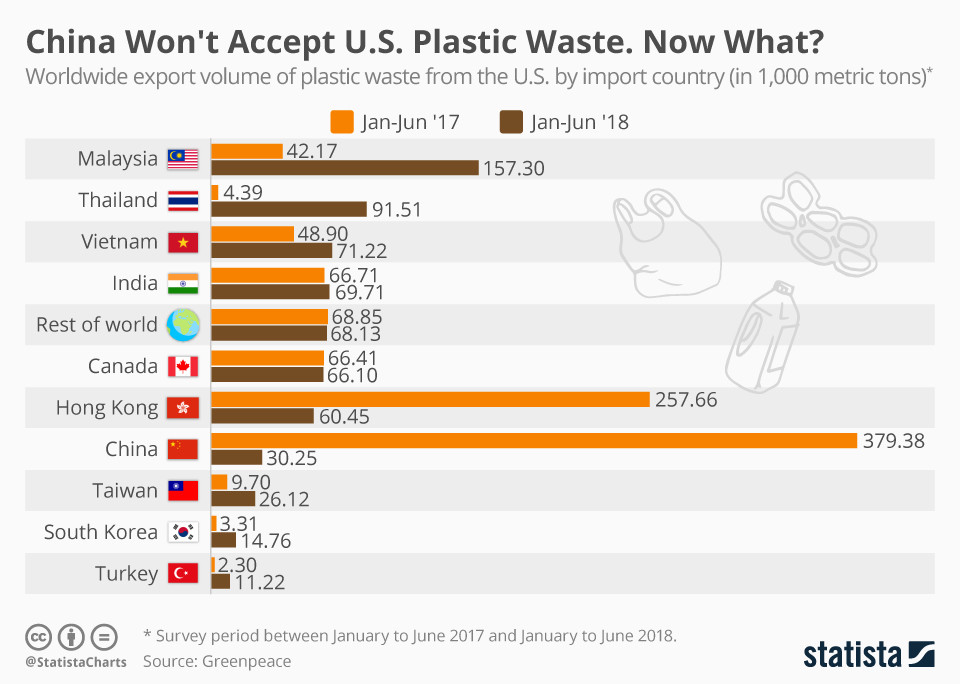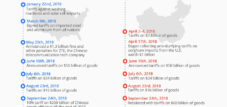U.S. plastic exports to China plunged 92 percent between the first part of 2017 and the first part of 2018. Hong Kong's plastic waste imports from the US also fell significantly over the same period, falling by 77 percent.
According to Wired, the plastic spillover caused by the ban will be sent to aging incinerators or landfills. For cities and small towns, incinerating their recycling is one of the last measures to dispose of waste as foreign exports have been reduced.
Recycling through incineration poses many problems for the environment and the communities surrounding these incinerators. The incinerators are not equipped with modern mechanisms to reduce pollution, such as scrubbers on chimneys. For this reason, burning these plastics releases harmful dioxins into the air. Compounds associated with increased risk of cancer and asthma. The communities surrounding many of these incinerators and landfills are predominantly Black and Latino residents who are at higher risk of exposure to the negative effects of these pollutants.
US plastic waste exports to China plummeted by 92 percent between the first part of 2017 and the first part of 2018. Hong Kong's plastic waste imports from the US also dropped significantly over the same time period, dipping by 77 percent.
According to reporting done by the Wired , plastic spillover caused by the ban is being sent to aging incinerators or dumped in landfills. For cities and smaller localities, burning their recycling is a last-ditch effort to dispose of the waste, since foreign exports have been cut back.
Burning recycling poses many problems for the environment and the communities that surround these incinerators. The incinerators have not been outfitted with up-to-date pollution reducing mechanisms, like scrubbers on smoke stacks. Due to that issue, setting these plastics on fire releases harmful dioxins into the air, compounds that are linked to increased risks for cancer and asthma. Largely, the communities that surround many of these incinerators and dumping sites are black and Latino residents, who are at a higher exposure risk to the adverse effects of these pollutants.


